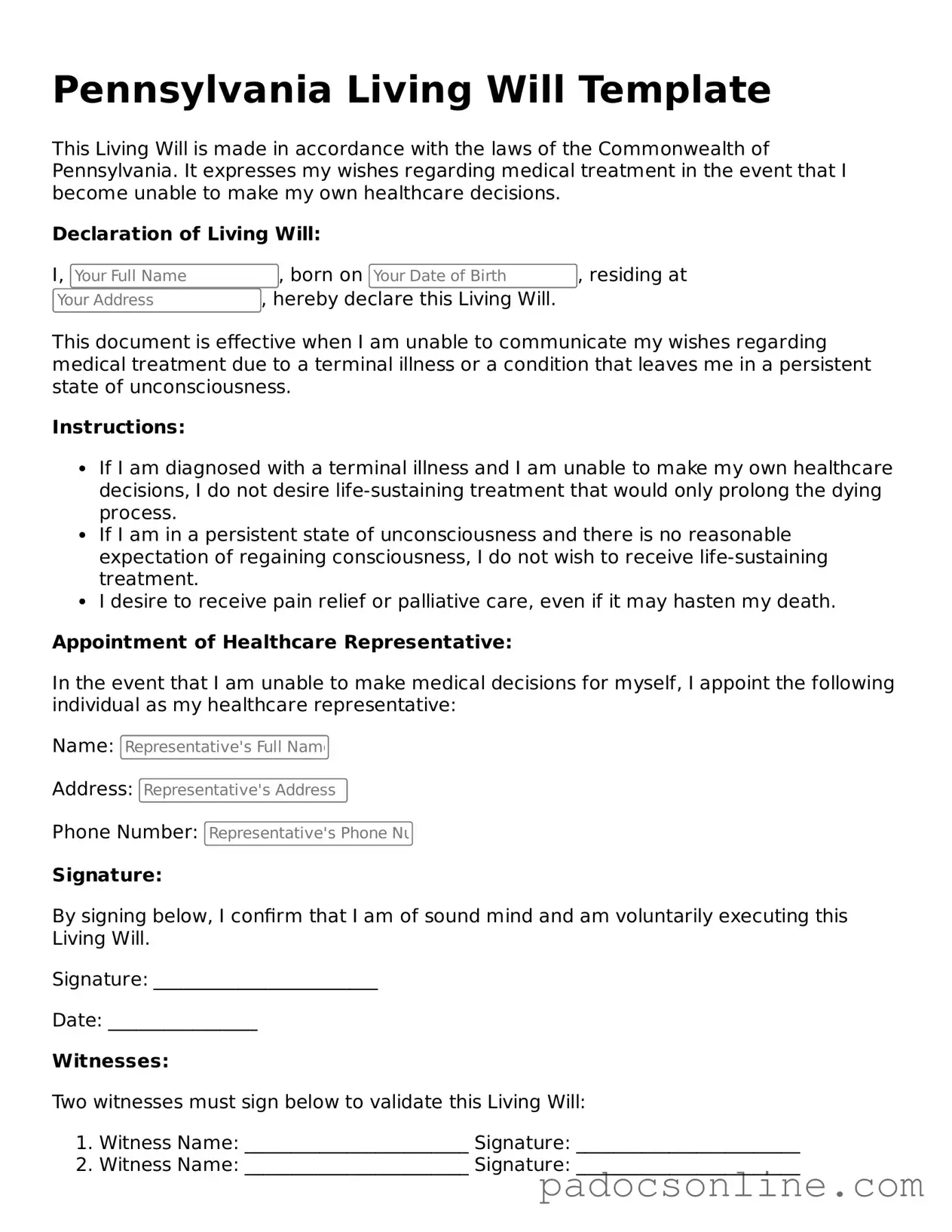Filling out a Pennsylvania Living Will form can be a crucial step in ensuring your healthcare wishes are respected when you can’t communicate them yourself. However, many people make common mistakes that can lead to confusion or even disputes among family members. Understanding these pitfalls can help you avoid them.
One frequent error is not being specific enough about your wishes. General statements can lead to ambiguity. For instance, saying you want "everything possible" done might leave room for interpretation. Instead, be clear about the types of medical interventions you do or do not want.
Another mistake is failing to update the document as life circumstances change. Major life events like marriage, divorce, or the birth of a child can impact your healthcare preferences. Regularly reviewing and updating your Living Will ensures that it reflects your current wishes.
Many individuals also overlook the importance of designating a healthcare proxy. While a Living Will outlines your wishes, a proxy is the person who will make decisions on your behalf if you’re unable to do so. Choose someone you trust and discuss your wishes with them in detail.
Additionally, some people forget to sign and date the document properly. In Pennsylvania, your Living Will must be signed in the presence of two witnesses or notarized. Without proper signatures, the document may not be considered valid, potentially leaving your wishes unfulfilled.
Another common oversight is not discussing your Living Will with family members. It’s important that your loved ones understand your wishes and the contents of your Living Will. Open communication can prevent misunderstandings and disputes when the time comes to make decisions.
Some individuals may also neglect to consider state-specific requirements. Each state has its own laws regarding Living Wills. Familiarizing yourself with Pennsylvania’s specific requirements ensures that your document meets all legal standards and is enforceable.
Another mistake is using outdated forms. Laws and regulations can change, and it’s essential to use the most current version of the Living Will form. Check with reliable sources to ensure you have the latest document that complies with Pennsylvania law.
Lastly, many people fail to store the document properly. Keeping your Living Will in a safe but accessible location is vital. Inform your family and healthcare providers where they can find it. If they can’t locate your Living Will when needed, your wishes may not be honored.
By avoiding these mistakes, you can create a Living Will that truly reflects your healthcare preferences and provides peace of mind for you and your loved ones.
